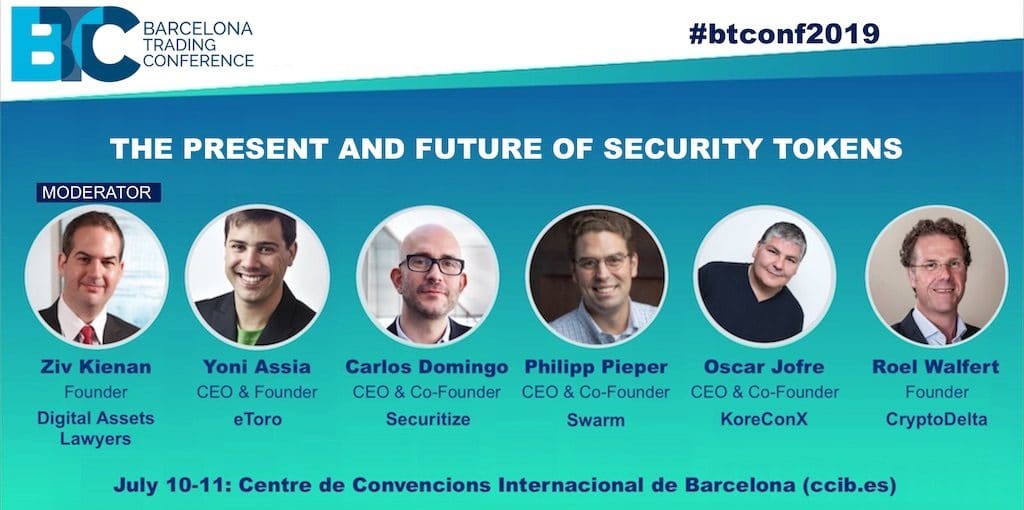The Finance Magnates Barcelona Trading Conference started the afternoon off with a bang. Five panelists - Philipp Pieper, Bilal El Alamy, Yoni Assia, Roel Wolfert, and Carlos Domingo - sat alongside moderator Ziv Keinan, securities expert and digital assets lawyer, for a panel on the present and future of Security Tokens.

The topic will be discussed at the security tokens panel on the Barcelona Trading Conference 2019
Pieper said that “now is the time to untangle financial services” with Tokenization .
He explained that the things that tokenization can bring to the securities space constitute a “3-legged stool”: access, Liquidity , and efficiency.
Using asset tokenization, “we can collapse the process of compliance and documents from one way to another,” he said. In other words, the process of buying and selling assets can be simplified from beginning to end--which, Pieper noted, is an improvement” to regulators’ current state of affairs.
Yoni Assia, CEO of eToro, pointed out that while this may be true in the future, the act of tokenizing an asset at this moment in time often involves jumping through endless regulatory hoops. Indeed, the current state of affairs is “very tedious work, very high cost,” he agreed. “But suddenly, if you want to do security tokens, you need twice the amount of lawyers.”
This is “probably because we’re at the point in time that regulations haven’t been established yet,” he added.
He also pointed out that there’s a serious lack of liquidity within the security token space. “Where is the liquidity coming from in the STO market?” he asked. “If there are no buyers and no exchanges that list security tokens, there’s a big liquidity gap.”
Carlos Domingo agreed but said that tokenization simply needs time to develop before it can be implemented on a major scale. “You have to think about [the fact that] today, there are only three exchanges that are trading security tokens,” and those that are list only a few.
“The marketplaces just aren’t there [yet];” he said. “The ones that are have just launched several months ago...the situation is particularly bad because we are in the early days of the market.”
“It’s going to take 12-18 months for this to mature and make a big impact.”
While this may be the case, Pieper said that “people aren’t realizing how big an institutional engagement is happening now.”
But what needs to happen before tokenization becomes a more widely-used practice? “We will win if we make this process smell and feel like a regular investment process,” he said.


















